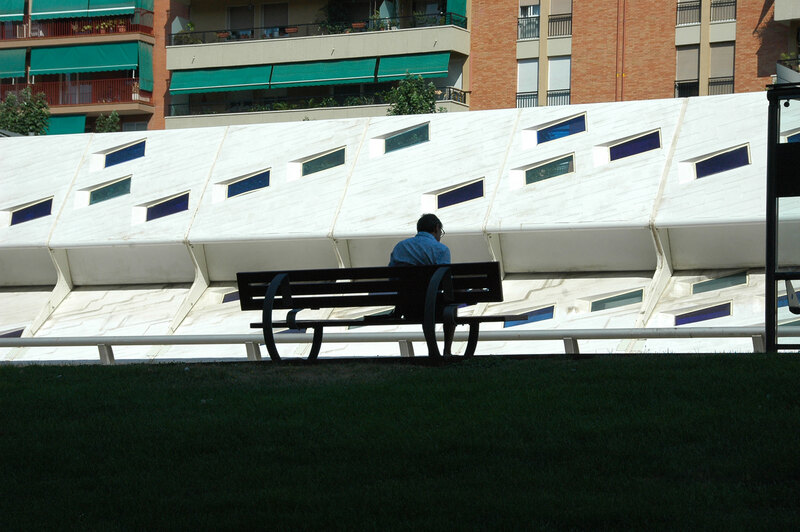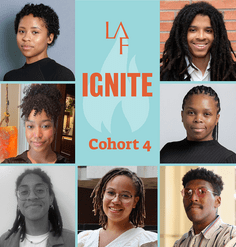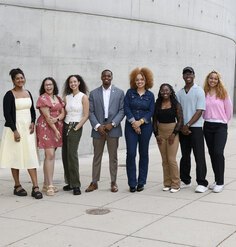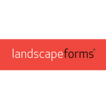2009 National Olmsted Scholar Update

July 16, 2010
David Malda, the 2009 National Olmsted Scholar, recently graduated from the University of Virginia, adding a Masters of Landscape Architecture degree to the Masters of Architecture he received last year. David is currently in Spain pursuing research, but we caught up with him via phone, to find out what influence the Olmsted Scholars Program and $25,000 award had on him and learn what he’s doing next.
How has being named the 2009 National Olmsted Scholar impacted you?
For me, the significance of the Olmsted award is two-fold:
The financial support made it possible for me to spend the past months working on online resources and my research on urban highway landscapes and public space. The funding is also supporting my trip to Barcelona where I have been able to document a number of projects that are less well known particularly in the context of the larger system of highways, rivers, and sea that structure much of the city. With the support of the award, I will be able to continue this project as it relates to my Urban Highway Landscapes wiki and other writing on these issues.
More significantly the Olmsted award and associated LAF activities during the ASLA Annual Meeting in Chicago have increased my awareness of the need to link professional and academic research agendas and the potential for student initiatives to impact and influence the practice of landscape architecture. This is why I think the Olmsted Program (and not just the scholarship) is so exciting. A lot of students are doing really interesting work beyond the typical design studio. The LAF plays a valuable role in connecting and promoting these students.
Tell us more about your projects.
During my time at UVA, I increasingly became aware of the need to develop and expand our tools for collaboration, particularly with regard to research resources. This led me to develop two projects for online resources: one for the UVA School of Architecture and the second for my own research on urban highway landscapes and public space. This primarily took the form of two wikis.
The resource wiki for UVA initiates a new effort to share educational resources like tutorials as well as build a shared lexicon, research topics, city maps and histories, and case studies that carry on from year to year and expand beyond the boundaries of any particular class. Because it is organized as a wiki, the content is modifiable by all students at any computer and is contained entirely within the site. It is my hope that this kind of collaborative resource will allow projects to move beyond a particular student or class and allow work within the university to build on itself over time. Ideally, this kind of resource might be shared among universities and even between schools and professionals to gain momentum.
The Urban Highway Landscapes wiki (www.davidmalda.com/wiki soon to be renamed) focuses on projects related to freeways in cities as well as a variety of readings and other resources that explore the relationship between such infrastructural projects and ideas of public space. I am currently documenting a number of recent projects in Spain, Germany, and the U.S. to add to the wiki. I am also working to add more information about the efforts of community groups currently working on these kinds of projects so that the page might connect related efforts. Again, because it is a wiki, other users can log in and add content.
What’s next for you?
At the beginning of August, I will move to Seattle and look forward to being involved in the public process surrounding the development of the viaduct and seawall projects. I will continue to develop the wikis, as well as work on several essays related to the topic of urban freeway landscapes.
Any opinions expressed in this interview belong solely to the author. Their inclusion in this article does not reflect endorsement by LAF.










